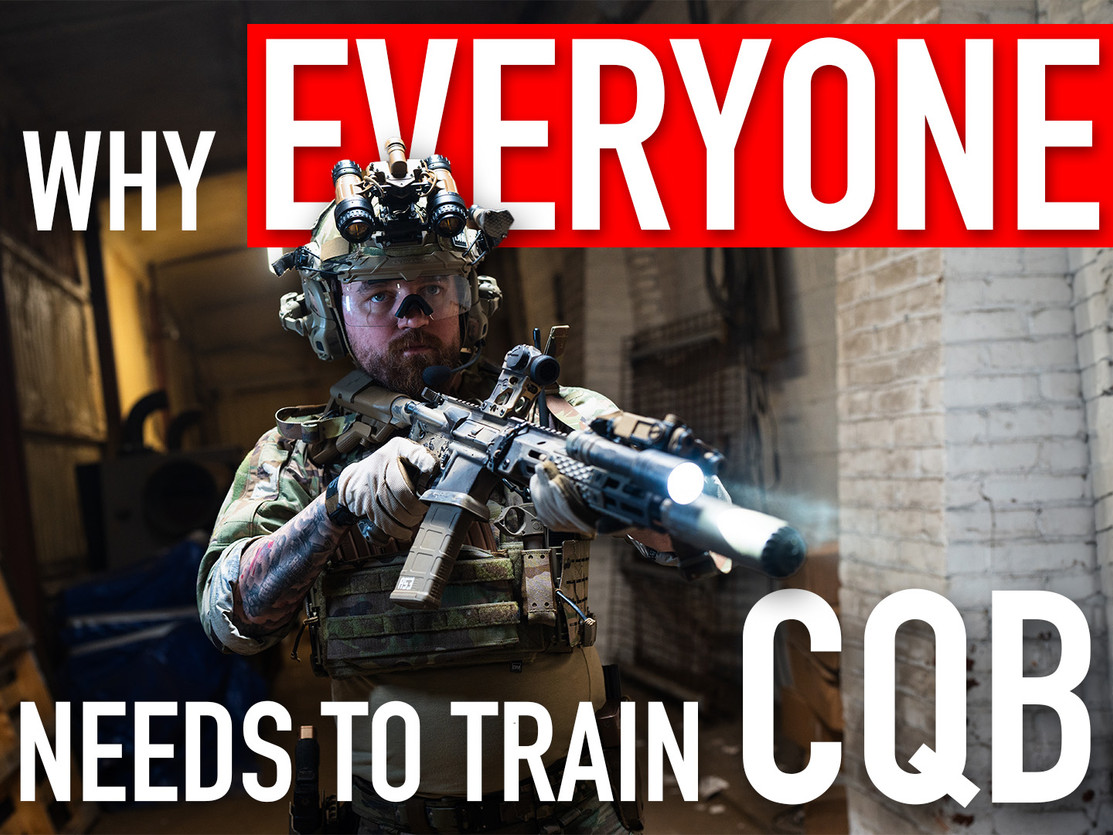Posted by Tim Marshall on Aug 13th 2024
Why Every Gun Owner Should Consider CQB Training
In today's world, the importance of training for armed civilians, law enforcement, and military personnel cannot be overstated. One of the most debated topics in the gun-owning community is Close Quarters Battle (CQB) training. Often seen as a specialized skill reserved for elite forces, CQB offers a wealth of benefits that can be invaluable to anyone who may find themselves in a high-stress, defensive situation. In this blog post, we'll explore why CQB training is essential, its core components, and the skills it helps develop.
What is CQB?
At its core, CQB involves safely maneuvering through various environments while managing firearms, whether you're in a building, a vehicle, or any other confined space. This training focuses on navigating obstacles, coordinating with teammates, and ensuring that firearms are handled safely, avoiding "muzzling" innocent people. Unlike traditional range shooting, CQB is dynamic and requires a different set of skills.
The Value of CQB Training
1. Safe Firearm Handling: One of the first and most crucial lessons in CQB is learning to move safely with a weapon. This is often overlooked in flat-range shooting, where the environment is controlled and straightforward. In CQB, you learn to navigate complex environments without accidentally pointing your firearm at non-threats.
2. Problem Solving Under Stress: CQB is essentially about problem-solving in high-stress situations. The training helps you break down complex scenarios into manageable tasks. For example, when facing multiple threats or obstacles, CQB training teaches you to prioritize and tackle each issue methodically. This experience is invaluable, as it reduces the likelihood of being overwhelmed in real-world situations.
3. Stress Inoculation: Being exposed to high-stress situations during training helps you build resilience. The more you practice under stress, the more prepared you'll be if you ever face a real-life scenario. This "stress inoculation" can be crucial in ensuring that you make rational decisions when it matters most.
4. Balancing Angles of Exposure and Attack: CQB training teaches you how to balance the angles from which you could be attacked with your own angles of engagement. This isn't just for military or law enforcement; anyone concerned about self-defense can benefit from understanding how to navigate complex environments while keeping potential threats in check.
5. Testing Skills and Equipment: Unlike traditional shooting ranges, CQB training often involves moving through real-world environments. This setting allows you to test your skills and equipment in conditions closer to what you might face in an actual encounter. You'll discover the strengths and weaknesses of your gear and whether it suits your needs.
6. Reading the Environment: A critical skill in CQB is learning to read your environment quickly. Whether it's determining how a door opens or identifying potential threats, this skill frees up mental resources for other critical tasks. Over time, these assessments become almost instinctual, allowing you to focus on more complex aspects of the situation.
Efficiency Over Speed
One common misconception about CQB is that it's all about speed. While it often looks fast, especially in media portrayals, the key to effective CQB is efficiency. The most skilled practitioners aren't necessarily the fastest but are the most efficient problem solvers. They don't rush into situations without a plan; they solve problems as they arise, allowing them to move seamlessly from one challenge to the next.
The Broader Benefits of CQB Training
Beyond the technical skills, CQB training offers a broader range of benefits:
- Improved Problem Solving: The training enhances your ability to solve problems quickly and efficiently, even in high-stress environments.
- Breaking Down Complex Problems: CQB teaches you to break down overwhelming scenarios into actionable steps, making it easier to tackle large tasks.
- Enhanced Accuracy in Non-Traditional Settings: In CQB, you'll often shoot from unconventional positions and have to make split-second decisions. This improves your ability to apply accuracy in various conditions.
- Verbal Skills and Suspect Control: The training often involves scenarios where you must communicate with potentially hostile individuals. Learning how to control these interactions verbally is another valuable skill set.
- Understanding Priority of Life: CQB training emphasizes the importance of prioritizing lives, including your own, in various scenarios. This understanding can guide your actions and decisions in life-threatening situations.
Conclusion
CQB training offers invaluable skills and experiences for anyone who owns a firearm, regardless of their background. It goes beyond marksmanship, focusing on problem-solving, safety, and efficiency. Whether you're a civilian concerned about self-defense or a professional in law enforcement or the military, CQB training can significantly enhance your ability to handle high-stress situations. It's not about running fast or looking cool in tactical gear; it's about preparing to handle complex, real-world problems efficiently and effectively. So, if you're serious about self-defense and want to improve your skills, consider incorporating CQB training into your regimen.

